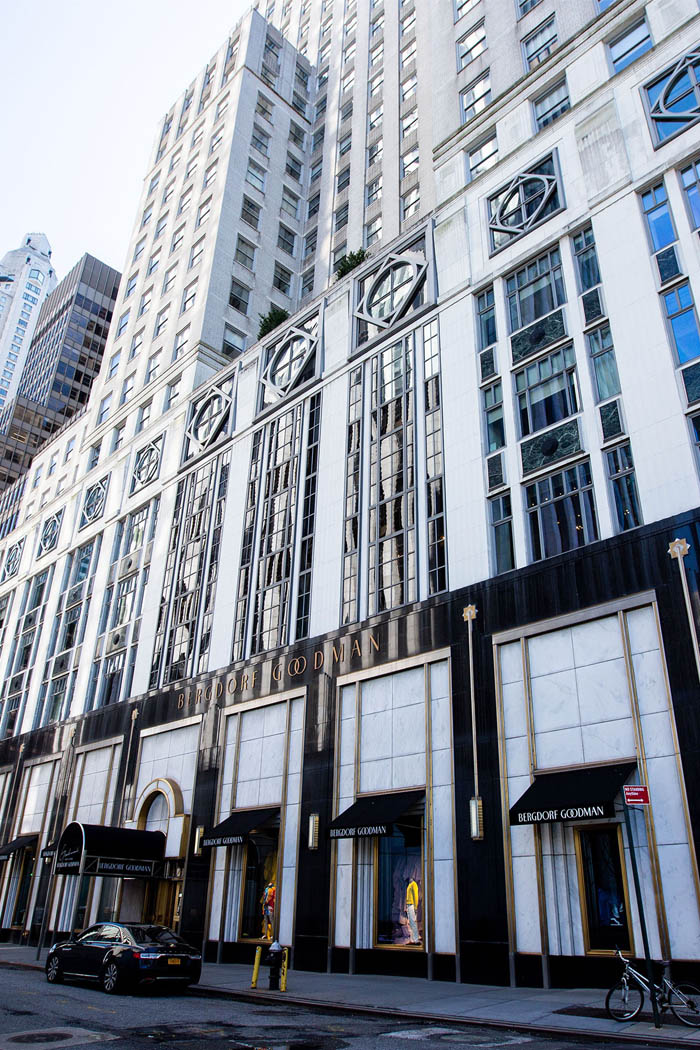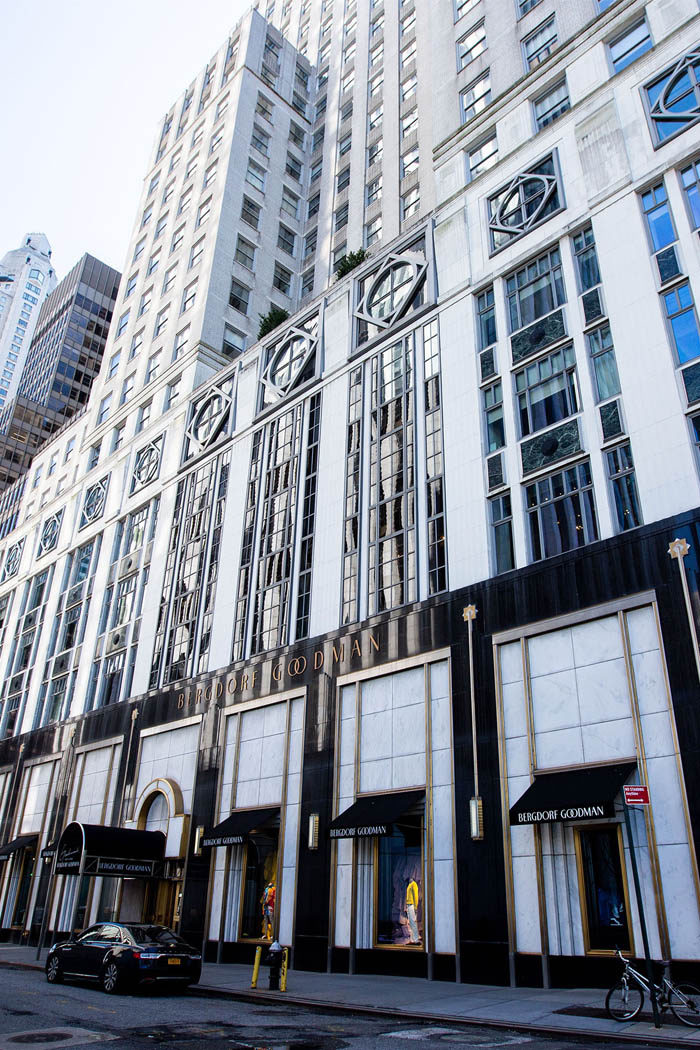For retailers in New York City, the road back has begun. On Monday, many city retailers selling “nonessential” goods that had been closed since March due to the coronavirus reopened their stores in accordance with “phase one” of the restart of the local economy. Many more are expected to follow suit later this week.
Phase one allows retailers to have curbside and in-store pickups of online orders and provide deliveries. Retail employees and customers must wear masks; hand sanitizer must be available; social distancing is required, and no shopping or browsing inside stores is allowed.
Because of its parameters, phase one may not mean much sales volume for retailers. Yet it’s an important step forward giving retailers hope for better business ahead, and for bringing tens of thousands of people back to work, in retail alone. With phase one also allowing for the restart of manufacturing and construction projects around the city, an estimated 200,000 to 400,000 people returned to work in New York City on Monday.
Stores are opening on different days this week due to varying levels of preparations each requires. Aside from complying with phase one by issuing masks and installing sanitizers and markers for social distancing, some retailers also need to repair stores that were damaged during looting last week. In certain cases, windows destroyed still need to be replaced, and plywood barriers have to be taken down. In addition, certain merchants are restocking their shelves after removing merchandise to protect it from looting or being damaged.
Still, other retailers are dealing with insurance issues, or just aren’t ready to open yet due to concerns regarding the health of employees and customers, or want to see what other stores on their block have decided to do.
Phase one is a step toward the more significant “phase two,” which will allow for consumers to actually shop inside New York City stores while requiring store personnel to wear masks, have their temperatures taken, clean fixtures, counters and other surfaces, and continue to provide sanitizers and institute social distancing. Phase two in New York City is expected to happen in early July, according to New York Mayor Bill de Blasio, though the start date is fluid.
At Macy’s Inc., “Most of our New York City-area stores are opening for curbside today. A few, including Herald Square and Bloomingdale’s 59th Street, will open midweek. We’re working through the operational details,” said a spokeswoman.
At the Macy’s Herald Square flagship, curbside will be at the “At Your Service” entrance near 35th Street and Seventh Avenue. Customers will be able to walk up or drive up. “There will be socially distant markers inside and outside. Vehicle curbside will be signed in two spots using the planters on Seventh Avenue,” said the spokeswoman.

Bloomingdale’s curbside pickup — starting Tuesday, according to a spokeswoman there — will be located at the store entrance on 60th Street between Third and Lexington Avenues. At Neiman Marcus at Hudson Yards and Bergdorf Goodman on Fifth Avenue, back-of-house operations resumed Monday to fulfill online orders or orders placed remotely via sales associates. Next week, Bergdorf Goodman will also launch several contactless shopping services, including curbside pickup for Bergdorf’s women’s and men’s stores, which are on opposite sides of Fifth Avenue; same-day delivery in Manhattan, and same-day delivery in the Hamptons.
At Saks Fifth Avenue, “We are not starting curbside Monday, but expect to at some point later in the week,” said a spokeswoman. Customers can walk up, drive up or schedule a pickup time by phone or text to “sidewalk services associates.” Pickups will be available at the 49th Street entrance near Madison Avenue and there will be an outdoor coffee cart provided by Saks’ café.
“Madison Avenue has begun to reopen and we are going to see a rollout of many more stores opening as the week continues, which is great,” said Matthew Bauer, president of the Madison Avenue Business Improvement District, on Monday afternoon. “We are also seeing construction happening throughout the neighborhood, and there’s more traffic on the street already. There is a sense everyone is going to move forward. It’s a matter of timing.” Among the stores along the avenue that opened for “phase one” on Monday were Aquazzura, Etro, Morgan Fredericks, Robert Marc, See Eyewear and Artbag.
“Some stores want a little bit more time to reopen, and there is a sense that everyone is trying to figure out where everyone else is in terms of phase one, but we will see the vast majority of stores open by the middle or end of this week,” said Bauer. “It’s going to be a process. Things seem much more promising now. There are people out.”
De Blasio visited the Brooklyn Navy Yard, where manufacturing was able to restart Monday. Many of the firms there, including Lafayette 148, converted their facilities to produce personal protective equipment during the height of the pandemic. But now the facilities can return to manufacturing their own goods. The mayor said the city will be inspecting businesses “to make sure they’re doing the right thing,” to ensure worker safety and will be providing free face coverings.
“This is the first day of the reopening and it was achieved by New Yorkers’ hard work,” said the mayor. “This is clearly the hardest place in America to get to this moment, the hardest place to have a reopening, because we were the epicenter. Only because New Yorkers went the extra mile did we get here. Now, we’ve gotten all this way, let’s hold onto it. Let’s keep building on it.”
Even so, the mayor said there’s no rush to jump into phase two, when retail stores can welcome customers to shop inside their stores. Although most municipalities spend two weeks per phase, de Blasio has said he expects it would be no earlier than late June, and more likely the beginning of July, before New York City can enter phase two. Ultimately, however, it’s the decision of Gov. Andrew Cuomo, which could once again pit the two politicians against one another.
Elliot Rabin, owner of the Peter Elliot men’s store on the Upper East Side, closed his store for three weeks and then reopened it in early April — in defiance of the government regulations. Although he was paid several visits by the police, he was never issued a summons, he said. “I was not going to let arbitrary, mercurial decisions keep me from opening,” he said. “Liquor stores were considered essential and people were elbow-to-elbow in the supermarkets and I’m not essential? We provide emotional support.” He also decided not to board up his store when the protests happened last week, and was not looted.
Rabin said historically, he would have sold around $300,000 in merchandise for bar mitzvahs and graduations, but that business evaporated this year. However, by reopening, he managed to bolster the store’s bank account from $3,000 to $70,000. He said the store has been sending back merchandise to suppliers and is keeping only colorful, fun items to help bolster spirits of customers. “We’re taking all kinds of orders and our best-selling item is a $197 necktie. We’ve sold over 100,” he said.
In contrast, Jack Carlson, founder of Rowing Blazers, opted to keep his store on Grand Street in lower Manhattan closed. “We’ll reopen at some point, but not right away,” he said. “We discussed doing curbside pickup, but we’re more focused on taking it slow and minimizing anything going wrong and us contributing to a second wave [of the virus spreading]. So we’re waiting to see how it goes with other people — we don’t want to be a vanguard.”
His store was also mainly spared from looting. He said his alarm company called him last weekend to say someone tried to break down the door, “but were not successful. We feel very lucky.” Although other nearby stores such as Kith and Onitsuka Tiger were damaged, Carlson just removed all the inventory from the store, including the artwork, rather than board up the facade. “We have one store. If they took our inventory, it would have represented a lot of what we have.”
Ken Giddon, president of Rothmans, whose flagship men’s store is on Union Square, had considered reopening quietly on Monday, but opted against it. “We’re not open at all. We think the city and country have to heal and our customer is not plugged into clothing this week in New York.…We were just looted a week ago, so we’re in physical recovery mode. We’ll reopen when the time is right,” he said.
In addition to addressing how retail workers need adequate PPE and that all New Yorkers must wear masks in public, more specifically in stores, Stuart Appelbaum, president of the Retail, Wholesale and Department Store Union, said he was “deeply troubled” by the behavior of police officers toward protesters since the killing of George Floyd in Minneapolis.
Appelbaum said the city’s “incredibly diverse” retail workforce needs to know they will be safe commuting to and from work. “This means security in knowing that you will not be targeted by the police for the color of your skin. At the moment, this is far from being reality. We cannot and will not rest until every New Yorker can live and work in safety. We must make this a city where black lives matter. We must make this a city where workers and all people are respected and protected,” he wrote.
Representing more than 100,000 members throughout the U.S., the RWDSU is calling for proper social distancing in break rooms and bathrooms, proper PPE, access to rapid testing, on-site screening of workers, adequate break time for hand washing and to put on training for new store procedures and safety measures. The union is also asking that should a worker feel sick they can stay home to quarantine while being paid and having access to affordable health care.
“That means capacity in health departments has to be expanded to do effective training,” Appelbaum said. In New York City’s garment district, most of the reopenings were limited to curbside pickup for restaurants — not really general retail, according to Barbara Blair, who heads up the Fashion District BID.
Investors on Wall Street were certainly feeling more bullish with New York City starting to open back up. The S&P 500 — a broad gauge of stock market — rose 1.2 percent to 3,232.39 Monday, leaving the index just above where it started out the year. Many fashion and related companies showed outsize gains, including Fossil Group Inc., up 54.2 percent to $8.10 after the firm gained some extra financial flexibility by amending its credit agreement; Express Inc., 25 percent to $2.55; Coty Inc., 22 percent to $6.21; Capri Holdings., 11.8 percent to $23.29; Farfetch, 10.9 percent to $15.57; Gap Inc., 10.8 percent to $13.65 and PVH Corp., 10.7 percent to $69.46.


